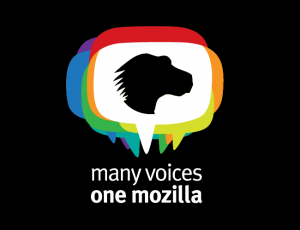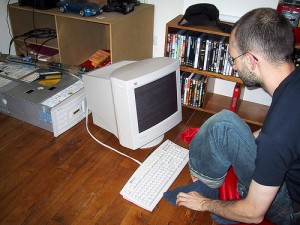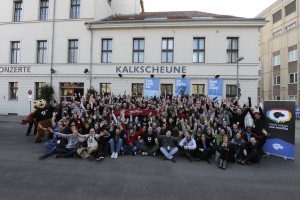On Monday we branched Firefox OS 2.0 which is the first branch to contain a new localization library that has been developed by my team.
What landed for 2.0
Library landing and reactions
The library itself landed exactly two months ago. In order to avoid any potential regressions, we’ve put a lot of work to ensure that it matches the behavior of the old code that it replaced. I believe we can now claim a success, because with two months of baking on master we didn’t get any serious regressions that would require us to change anything in our code.
The new library comes with a lot of unit tests and is stricter than the old code, so we had to fix a couple of small bugs where code has been passing an object instead of a string to our API and one related to one test failing on old machine with too little memory. That’s been simple to catch and fix.
We also got a few requests to improve the console log output and error output that the library produces in order to simplify developers work.
New features
Pseudo-locales
The major new thing that Stas completed in this cycle is the support for pseudo-locales. While this could be done with the old code, it was significantly easier with the new code thanks to some architectural decisions like separation of buildtime and runtime code.
Pseudo-locales allow developers to evaluate their UI’s localizability against an artificially generated english-like locale to catch any hardcoded strings. It also generates right-to-left locale for testing purposes. Before that, we’ve been relying on often outdated localizations that we kept with our source code. Now we can always test against fully generated pseudo localization.
mozL10n.once wrapper
Another new feature is the introduction of mozL10n.once wrapper. We identified that a lot of Gaia apps are waiting for localization to be ready before they initialize themselves. That makes sense since a lot of those apps want to work with UI and localized strings, but the challenge in asynchronous world is that you never know if your code has been fired after or before mozL10n is ready.
Because of that, simply setting an event listener and waiting for window.onlocalized event is not enough (what if it already has fired before your code was launched?). Developers were using mozL10n.ready wrapper, but the problem with that is that is has been designed to re-fire on reach retranslation which meant that your init code has been fired every time user changed language. That’s not an intended behavior, but admittedly a rare one. What’s worse is that we retained all the init code in memory.
Now, with mozL10n.once we can safely initialize code when l10n resources are available and free the memory right after that.
Uses of l10n API
On top of adding new features, we’ve been mostly busy investigating and improving how the default Firefox OS apps interact with localization API. That led to multiple design decisions including introduction of the described above mozL10n.once.
Once we got the new wrapper, we started analyzing bootstrapping code of each and every Gaia app and updating it to use the proper L10n API. Twenty two fixed bugs later, we’re done!
It’s incredible how much we were able to accomplish in just two short months. We feel much better right now about the bootstrap process and we have a clear picture on what we want to do next.
Use new navigator.languages API
Thank’s to Mounir’s work on navigator.languages API and implementation we were able to remove the only Mozilla specific API in mozL10n. That means that mozL10n should work in any modern browser now!
What we’re working on for 2.1
2.1 will be as ambitious for us as 2.0 was. The hashtag of the work is still #cleanup, but now it’s much more about modifying our API so that it’s more transparent to developers and requires less manual code in their apps.
entity.attributes become node attributes
First thing we were able to land is the transition away from assigning l10n entity attributes as node properties. We cleaned up the hacks that have been used and switched to entity attributes as node attributes.
DOM overlays
Next, we have one leftover from the previous change and that is an infamous innerHTML. We currently don’t have any clear way to inject localizable DOMFragment in Gaia. Fortunately, we have one that fits perfectly in L20n. It’s called DOM Overlays, and we’re working on getting them into mozL10n. That will allow us to further secure L10n API and remove any innerHTML calls.
Mutation Observers
Majority of localizability code in Gaia apps is related to localization of DOM nodes. With Mutation Observers we will be able to significantly reduce the amount of manual calls to mozL10n API and make majority of calls be just about settings data-l10n-id attribute with Mutation Observers doing the rest.
Not only will it reduce the use cases of mozL10n.translate and mozL10n.localize, but I expect to be able to cut by over 50% the number of manual mozL10n.get calls and manual operations that are currently used to set the result of that call into the node.
Mutation Observers will simplify Gaia code, reduce the amount of bugs related to language switching and get us closer to runtime l10n API that we want to offer for Gecko.
Bootstrap
There are still some interesting edge cases around how code boostrapping relies on particular pieces of environment. Does your code need DOM to be interactive? Does it need l10n resources to be loaded? Or maybe you need DOM to be localized? All those events happen asynchronously and we currently do not have a clean way to guard against any combination of those that your init code may require.
We’re working on a bootstrapping wrapper that will allow app developers to simply define which pieces of environment should their initialization be blocked by.
That will further secure the app boostrapping process and limit the risk of condition races.
mozDOMLocalized
One part of the bootstrap puzzle is how we fire event when certain bootstrap things happen. Right now we fire window.onlocalized event that means that mozL10n resources have been loaded, but doesn’t tell us anything about if document’s DOM has been localized (and is ready to be displayed).
With the work on the new event, we’ll be able to remove the global one, and settle on triggering on event on document and one on mozL10n object. Did I tell you that we’re still cleaning up? 🙂
Move mozL10n to document
We originally placed mozL10n object as a property on navigator object. Because our API is transitioning to be per-document, it becomes an inconsistency and an obstacle to keep mozL10n API on navigator object. It hardly fits the world with iframes, ShadowDOM and HTML Templates. We’re going to move it to document.mozL10n.
Remove inline l10n
One of the built time optimizations that we have in Gaia is called inline l10n. We store some portion of the l10n resources within each HTML file in order to localize the UI before it is displayed. It’s not very scalable, costs us memory and performance, but historically helped us prevent flashes of untranslated content. We hope to be able to remove this optimization in this cycle which will significantly simplify our internal code and give us some small memory and performance wins.
Is this L20n yet?
While we introduce L20n concepts into mozL10n, we’re still pretty far from being able to say that we support L20n API in Gaia. There’s a lot of work to do and it’s going to be a challenging work as we port L20n concepts to Gaia, and merge lessons we learned while working on Gaia into L20n spec and implementation. What we hope to end up with is a single codebase used in Gaia and offered to web developers.
It’s an exciting journey and I’m so happy to make Firefox OS’s localizability the most modern among all OSes!




